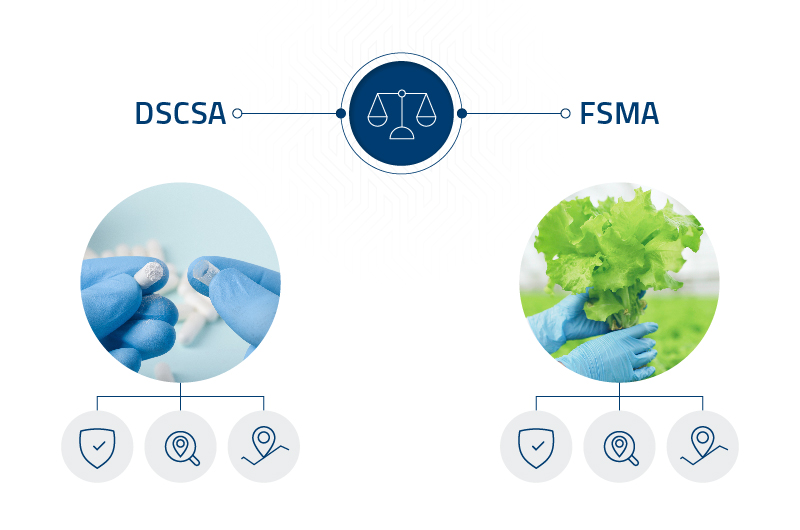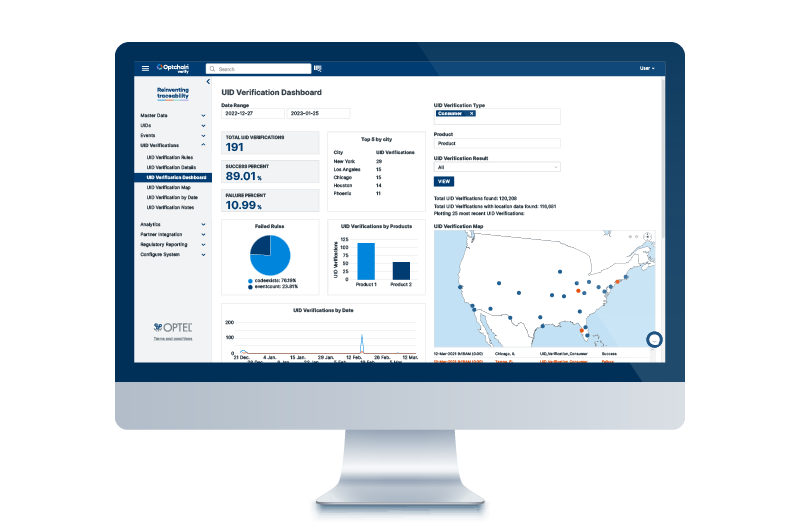WHY OPTEL IS YOUR GO-TO PARTNER
The pharmaceutical and food & beverage industries are continuously evolving due to the demand for more rigorous regulations to safeguard citizens from a wide range of issues, including counterfeit, stolen, contaminated or dangerous products.
Two such landmark regulations that have garnered attention in recent years are the Drug Supply Chain Security Act (DSCSA) for pharmaceutical companies and the Food Safety Modernization Act (FSMA) for food & beverage businesses.
Though these regulations cater to different sectors, the foundational elements are astoundingly similar, and companies like OPTEL, leading the charge in DSCSA compliance, are equally positioned to leverage this common ground for FSMA 204 conformity.






